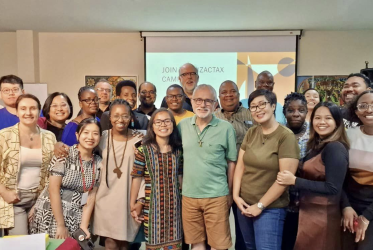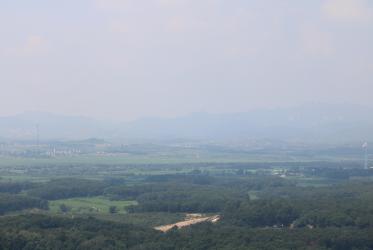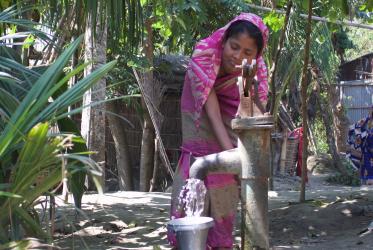Displaying 1 - 20 of 31
09 February 2024
GEM School explores how to make new economic world order a reality
08 September 2023
WCC condemns massacre of farmers in Philippines
12 April 2019
G20 summit: call to pray for peace in Hamburg
07 July 2017
“Overcoming economic injustice” vision of WCC’s Athena Peralta
23 February 2017
GEM school ends with hope for a better tomorrow
08 September 2016
A just financial and economic architecture is possible, students find
08 September 2016










